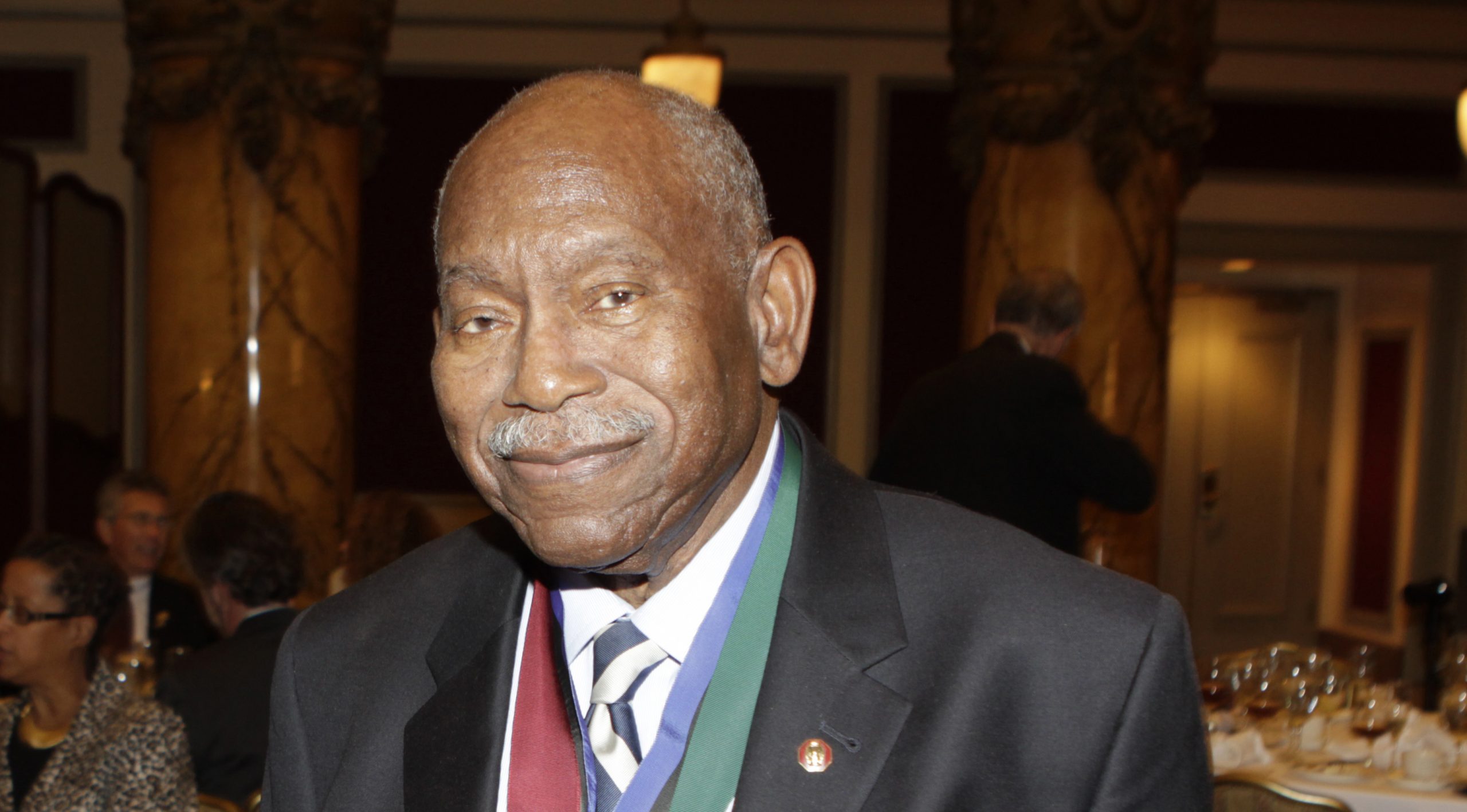
John Henri Spencer, FAIA, has been recognized with the William C. Noland Medal by AIA Virginia for his leadership within architectural education beyond the status quo to create opportunities for generations of architecture students. As the highest honor bestowed by AIA Virginia to an architect, the Noland Medal is intended to honor a distinguished body of accomplishments, sustained over time, spanning a broad spectrum of the profession, and transcending the scope of normal professional activities. The honor is in memory of William C. Noland, FAIA, one of the founders of the AIA in Virginia, its second president, and Virginia’s first member to be elevated to fellowship.
Spencer is a pioneering leader for Black architects in America, a distinguished teacher who influenced thousands of students, and a committed educational administrator who created countless programs, initiatives, and pathways for growth and mentorship. Under his leadership, the study of architecture at Hampton University evolved through focused curricular development, fundraising, and academic excellence–the pinnacle of a 63-year career of service in education, in the public arena, and to the profession of architecture. Spencer was born in Monrovia, Liberia to missionary parents serving at the Suehn Industrial Mission, which influenced his philosophy for teaching, community and professional service and social action. After high school in Huntington, West Virginia, John enrolled in the architectural engineering program at the Agricultural and Technical College (now university) in Greensboro, North Carolina. His education was interrupted by service in the U.S. Navy during the Korean War and, upon discharge, John transferred to Hampton Institute (now University) graduating in 1956 with highest honors.
Spencer joined the faculty of the School of Engineering at the University of Massachusetts, Amherst, where he co-founded the Committee for the Collegiate Education of Black Students (CCEBS) with support from the Ford Foundation to increase the number of Black students enrolled at the school. The first group recruited by CCEBS arrived in 1968 and of the original 128 students, 90 graduated four years later in 1972–more than the total number of Black graduates of Amherst combined in its 105 years. In its first decade, CCBES recruited and Amherst graduated more than 2,000 Black students. At Amherst, he also led efforts to provide volunteer tutoring for Black students and led the Amherst Human Relations Council and Fair Housing Committee, and established Black history education in high schools that brought about positive change in the town of Amherst and beyond.
In 1970, Spencer returned to the Hampton Institute as Chair of the Department of Architecture, where he encouraged students to look beyond the campus gates and involve themselves in the larger community. Notably, he initiated a student exchange program between Hampton and Amherst, and a broader travel program soon followed, growing out of a need to strengthen the fifth-year planning studio. It began with trips to large American cities supported by alumni who provided housing and meals at no cost. With the support of faculty, Spencer revised and expanded the program to require a two-week travel module to foreign cities, from Europe to Asia, and from Africa to Latin America. Since then, he has always led by example, becoming the first Black architect elected to the National Architectural Accrediting Board, first Black architect appointed to the Virginia Licensing Board, and assuming numerous other local and national positions of influence within the profession.
In his nomination letter, Professor and Dean Emeritus of Howard University, Harry G. Robinson III, FAIA, noted, “His consistent leadership has contributed to the strength of the African American narrative in architecture and has increased the richness and stability of the Hampton University Department of Architecture. If the Noland Medal is the pinnacle of recognition, the contributions of Professor Spencer are nearly unmatched and exceeded most.”
The William C. Noland Medal will be presented at Visions for Architecture on Thursday, Oct. 8 in an online awards ceremony beginning at 4:30 p.m. The program is free but registration is required.
